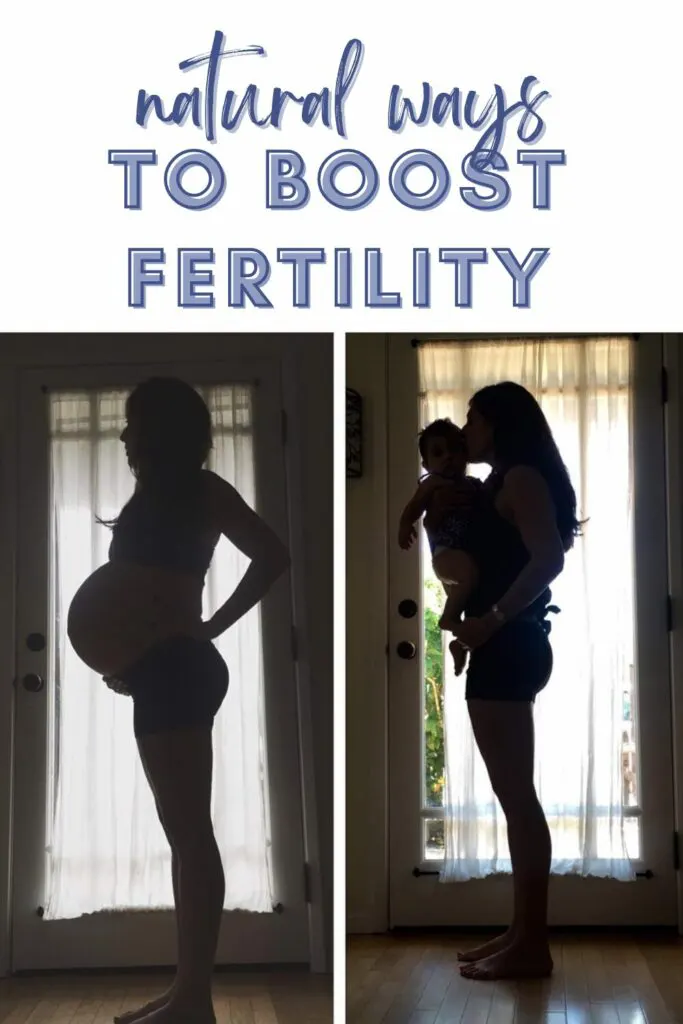Discover Natural Ways to Enhance Fertility and Support Your Hormones and Stress Levels
Hello there, friends! I trust you’re having a delightful day thus far. I have a conference call scheduled for this morning and two coaching sessions lined up for the afternoon. I’m eagerly anticipating squeezing in a lunchtime yoga class in between my packed schedule today.
In today’s blog post, I wanted to delve into the topic of fertility. While this phase of life may feel like a distant memory for me, I know many of you are either contemplating starting a family or actively working towards it. If the subject of fertility is sensitive for you, feel free to skip this post, and I’ll have a fresh podcast episode waiting for you tomorrow. You’re in my thoughts, and I’m sending you heaps of love.
Living a healthy lifestyle is not only essential for your overall well-being but also plays a significant role in fertility. It’s common for many individuals in the United States to face challenges when trying to conceive, with around 12-15% of couples experiencing fertility issues. The encouraging news is that by making a few adjustments to your lifestyle and diet, you can greatly enhance your chances of getting pregnant. While I acknowledge that there are intricate and challenging circumstances that can impact fertility, I firmly believe in focusing on what you can control, which is precisely what this post aims to address!
Today, I’m excited to share a collection of natural methods to boost fertility that could potentially make a world of difference. (As always, please consult with your healthcare provider before implementing any changes to your fitness or nutrition routine.)

(P.S. My baby fever is off the charts right now!)
13 Natural Ways to Boost Fertility
1. Reduce Stress
Stress can significantly impact fertility in both men and women. Elevated stress levels trigger the release of cortisol, a hormone that can disrupt the reproductive system, leading to irregular menstrual cycles in women and reduced sperm production in men. Managing stress levels through practices like yoga, meditation, deep breathing exercises, and regular walks is pivotal for enhancing fertility. Implementing these techniques into your daily routine can cultivate a more serene and balanced environment to aid in conception.
2. Maintain a Healthy Weight
Striking a healthy weight balance is paramount for boosting fertility. Both being underweight and overweight can pose challenges to fertility. Excess weight in women can result in hormonal imbalances and conditions such as polycystic ovary syndrome (PCOS), impacting ovulation negatively. Conversely, being underweight can lead to irregular menstrual cycles and difficulties conceiving. Embrace a diet abundant in whole foods and engage in regular physical activity to sustain a healthy weight, optimizing your fertility.
3. Increase Physical Activity
Regular physical activity not only fosters a healthy weight but also reduces stress and promotes overall well-being, all of which are advantageous for fertility. However, it’s crucial to strike a balance—moderate exercise can enhance fertility, whereas excessive exercise may have adverse effects. Over-exercising in women can cause irregular periods or even amenorrhea, while in men, it can reduce sperm count. Aim for moderate, consistent exercise such as brisk walking, swimming, or cycling for approximately 30 minutes most days of the week.

4. Limit Alcohol Consumption
Alcohol consumption can have adverse effects on fertility for both men and women. For women, alcohol consumption can disrupt hormonal balance, affecting ovulation and increasing the risk of miscarriage. In men, alcohol can reduce sperm count and quality. Restricting alcohol intake—or better yet, abstaining from it entirely—can substantially boost your chances of conceiving. If you’re attempting to get pregnant, consider swapping alcoholic beverages for non-alcoholic options or herbal teas.
5. Avoid Smoking
Smoking has been proven to profoundly impact fertility. In women, smoking can harm the fallopian tubes, induce cervical changes, and heighten the risk of miscarriage and ectopic pregnancy. In men, smoking can decrease sperm count and motility, along with causing DNA damage to sperm. Quitting smoking is a fundamental step towards enhancing fertility and overall well-being.
6. Eat a Balanced Diet
A well-rounded diet comprising fruits, vegetables, whole grains, lean proteins, and healthy fats equips your body with the essential nutrients to support fertility. Specific nutrients like folic acid, zinc, and omega-3 fatty acids play a crucial role in reproductive health. Including foods such as leafy greens, nuts, seeds, fatty fish, and avocados in your diet can aid in boosting fertility. Furthermore, limit consumption of processed foods, refined sugars, and trans fats, as they can have detrimental effects on fertility.
7. Consider Herbal Supplements
Certain herbal supplements have traditionally been utilized to bolster fertility. For instance, maca root is renowned for its hormone-balancing properties and fertility enhancement for both men and women. Vitex, also known as chasteberry, can assist in regulating menstrual cycles and promoting ovulation. Nevertheless, consulting with a healthcare professional before introducing new supplements is vital, as they may interact with medications and might not be suitable for everyone.
8. Monitor Ovulation
Understanding your ovulation cycle is critical for timing intercourse optimally for conception. Various methods can aid in monitoring ovulation, including tracking basal body temperature, observing changes in cervical mucus, and utilizing ovulation predictor kits. By identifying your most fertile days, you can heighten your chances of getting pregnant. Additionally, maintaining a fertility journal can help you attune to your cycle and detect any irregularities that warrant medical attention.
Check out this post about Fertility Awareness Method, which is what I use.

9. Get Adequate Sleep
Sleep plays a pivotal role in regulating hormones crucial for fertility, such as melatonin and cortisol. Inadequate sleep can disrupt these hormones, leading to fertility issues. Strive for 7-9 hours of quality sleep each night to support your reproductive health. Establishing a bedtime routine, limiting screen time before bed, and adhering to a consistent sleep schedule can all contribute to improved sleep quality and, consequently, enhanced fertility.
10. Limit Exposure to Environmental Toxins
Exposure to environmental toxins like pesticides, heavy metals, and endocrine disruptors can detrimentally affect fertility by interfering with hormone production and reproductive function in both men and women. Opting for organic produce, using natural cleaning products, and avoiding plastic containers containing BPA can help reduce your exposure to these toxins and create a healthier environment for conception.
11. Stay Hydrated
Maintaining proper hydration is vital for overall health, including fertility. Adequate hydration supports the production of cervical mucus, necessary for sperm to reach the egg, and helps regulate hormone balance in the body. Aim to consume at least eight glasses of water daily, and consider infusing your water with a slice of lemon or cucumber for added flavor and nutrients.
12. Consider Functional Testing
In addition to implementing lifestyle changes, undergoing functional testing is essential to gain a deeper understanding of your body’s unique requirements. Functional tests such as blood sugar levels, A1C, stress hormone patterns, mineral balance, and gut health can offer valuable insights into factors affecting your fertility.
For example, blood sugar imbalances can disrupt hormonal functions, high stress levels can lead to irregular cycles, and mineral deficiencies like low magnesium or zinc can impact reproductive health negatively. Poor gut health can influence hormone balance and nutrient absorption. By identifying these underlying factors, you can take targeted steps to naturally and effectively support your fertility. (If you’re interested in at-home functional lab testing, email me at gina@fitnessista.com. ALL tests are currently on sale this week, and I’d love to collaborate with you to uncover imbalances, toxicities, and deficiencies.)

13. Seek Professional Guidance
If you’ve been attempting to conceive without success for an extended period, it may be beneficial to seek professional guidance. A healthcare provider or fertility specialist can identify any underlying issues affecting your fertility and recommend suitable treatments.
Recap on How to Boost Fertility in Your 30s
– Prioritize self-care and stress management.
– Consider acupuncture to support fertility.
– Focus on nutrient-dense foods and balanced meals.
– Maintain a healthy weight through regular exercise and a balanced diet.
– Limit exposure to harmful chemicals and environmental toxins.
Implementing these strategies can have a profound impact on your fertility and overall health. Remember, every small step you take counts. For more natural health tips, feel free to explore my posts on natural remedies for PMS and my top 10 prenatal fitness tips.
With love and wellness,
Gina












